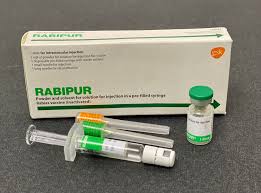
Introduction
The rabies vaccine plays a crucial role in preventing a deadly disease that affects thousands of people each year. Rabies, caused by a virus generally transmitted through the bite of an infected animal, has a near 100% fatality rate once clinical symptoms appear. The significance of vaccination in both animals and humans cannot be overstated, as it serves as the primary method for controlling and potentially eradicating this zoonotic disease.
Recent Developments
In recent months, several notable advancements have been made in rabies vaccination efforts globally. In September 2023, the World Health Organization (WHO) reported an increased focus on vaccination strategies, particularly in regions with a high prevalence of rabies. Campaigns have been launched in countries such as India and Nigeria, where rabies remains a public health crisis. In India alone, an estimated 20,000 deaths from rabies occur each year, prompting immediate action to increase awareness and access to preventative vaccines.
One of the key developments includes the introduction of the rabies vaccine in a more cost-effective format, aimed at improving accessibility for low-income communities. This has been reflected in partnerships between the WHO and various non-profit organizations committed to distributing vaccines more widely. According to the Global Alliance for Rabies Control, these initiatives have led to a more than 20% increase in vaccination rates among domestic animals, which is crucial in preventing transmission to humans.
Worldwide Vaccination Efforts
Efforts are also being made in areas previously viewed as rabies-free. In the United States, for example, rabies vaccination campaigns are now expanding to include even more dog populations, especially in rural areas where the disease can still pose a threat. With the completion of the rabies-free certification program for certain states, the USDA has begun implementing stricter regulations around vaccination and health certifications for pets traveling across state lines to maintain this status.
Conclusion
The rabies vaccine is not only essential for protecting human health, but it also plays a significant role in safeguarding animal populations. Ongoing vaccination efforts, combined with public education about the importance of vaccinating pets and livestock, are vital in the global fight against rabies. With the continued focus on vaccination and effective distribution of vaccines, the hope remains that rabies can be eradicated in the coming years, reducing the tremendous toll this disease takes on health systems worldwide. For concerned dog owners and public health officials alike, staying informed about vaccination campaigns and ensuring adherence to vaccination schedules will remain paramount in the fight against rabies.
You may also like

Understanding the Current Measles Outbreaks
The Integral Role of Hospitals in Modern Healthcare
